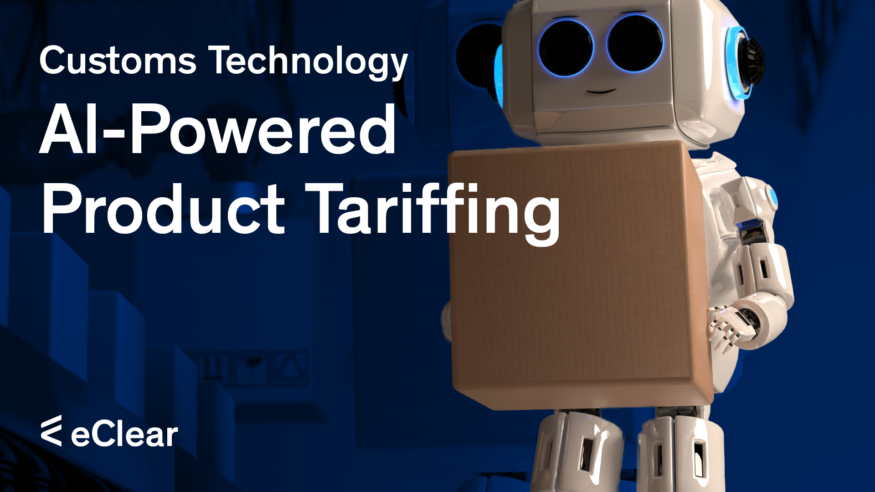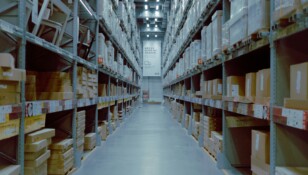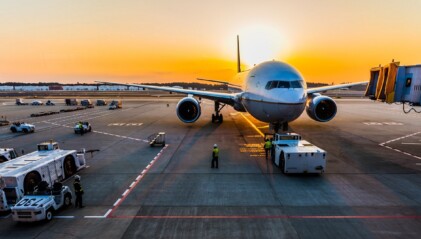- How does CustomsAI improve the accuracy of tariff classification? CustomsAI uses advanced machine learning algorithms to analyze product data, identify relevant features, and assign precise tariff codes, reducing errors and increasing compliance.
- What are the benefits of using CustomsAI for businesses? CustomsAI enhances efficiency by automating the classification process, saving time and resources, and minimizing the risk of human error.
- How does CustomsAI integrate with existing ERP systems? CustomsAI provides seamless API integration, ensuring smooth data transfer and accurate classification results directly within the existing ERP infrastructure.
In today’s interconnected world, global trade is the lifeblood of economies. However, the efficient movement of goods across borders hinges on accurate and streamlined customs processes. Product classification is one of the most critical yet often underestimated aspects of customs clearance. Assigning the correct tariff codes to goods is a complex task fraught with potential pitfalls, including misclassification, delays, and costly penalties.
The good news is that artificial intelligence (AI) is emerging as a game-changer in this arena. As a company focused on customs and VAT solutions, we’ve witnessed first-hand the transformative power of AI in streamlining complex processes. In customs, AI-powered solutions like eClear’s CustomsAI® are redefining how businesses navigate the intricacies of product tariff classification.
Unveiling the Pain Points of Manual Classification
The global marketplace is a treasure trove of opportunities, but navigating the intricate web of customs regulations can be a major roadblock for businesses. At the heart of this challenge lies the critical task of product classification – the process of assigning the correct tariff codes to goods. While seemingly simple, this process is fraught with complexities that can have far-reaching consequences for a company’s success.

© fizkes / Getty Images
Key Challenges Facing Businesses:
- Resource Constraints:
- Scarcity of qualified personnel with expertise in tariff classification.
- High costs associated with recruiting and retaining specialised talent.
- Difficulty maintaining in-house expertise due to turnover and knowledge gaps.
- Complexity and Constant Change:
- The ever-evolving nature of tariff codes and regulations.
- Frequent updates and revisions demand constant monitoring and adaptation.
- Manual classification processes struggle to keep pace with these changes.
- Severe Consequences of Misclassification:
- Triggers customs audits, leading to shipment delays and costly fines.
- Erodes trust with customs authorities, jeopardising reputation and future trade.
- Technological Integration Hurdles:
- Legacy customs processes often lack seamless integration with modern ERP systems.
- This leads to bottlenecks, inefficiencies, and hindered automation efforts.
The High Cost of Inaction:
The cumulative impact of these challenges is significant:
- Direct Financial Losses: Penalties, fines, and delays directly impact a company’s bottom line.
- Operational Inefficiencies: Manual classification consumes valuable time and resources, diverting focus from core business activities.
- Reputational Risks: Non-compliance can damage a company’s brand image and hinder its competitiveness.
The AI Advantage:
In light of these challenges, the need for innovative solutions is evident. Artificial intelligence emerges as a promising answer, offering the ability to:
- Process vast amounts of product data efficiently.
- Learn from patterns and adapt to changing regulations.
- Automate complex classification tasks, reducing the risk of human error.
By harnessing the power of AI, businesses can overcome the limitations of manual classification, streamline their customs processes, and unlock new opportunities in the global marketplace.
How CustomsAI® Combines AI and Expertise for Accurate Classification
Amidst the growing complexities of customs product classification, eClear’s CustomsAI® emerges as a cutting-edge solution that marries the power of artificial intelligence with the indispensable touch of human expertise. This unique approach transcends traditional manual processes and purely automated systems, delivering a new standard of accuracy and compliance.
How CustomsAI® Works:
- AI-Powered Analysis: CustomsAI® employs advanced machine learning algorithms to rapidly analyse vast amounts of product data, including descriptions, specifications, and even images. This intelligent analysis identifies relevant product features and characteristics, ensuring accurate matching against complex tariff codes.
- Expert Validation: eClear’s seasoned tariff experts meticulously review and validate the AI-generated classifications. This human-in-the-loop approach adds an extra layer of scrutiny, mitigating the risk of errors and ensuring the highest level of compliance.
- Continuous Monitoring and Updates: CustomsAI® constantly monitors and adapts to the ever-changing landscape of customs regulations. Regular updates ensure the system remains current with the latest tariff codes and amendments, minimising the risk of misclassification and associated penalties.
Key Advantages:
- Unparalleled Accuracy: By combining AI-powered analysis with expert validation, CustomsAI® delivers a level of reliability that surpasses traditional methods.
- Streamlined Efficiency: Automate the classification process, saving time and resources while reducing the risk of human error.
- Proactive Compliance: Stay ahead of regulatory changes with continuous monitoring and updates, minimising the risk of penalties and ensuring smooth customs clearance.
- Scalability and Adaptability: CustomsAI® is designed to scale with your business, accommodating growing product portfolios and expanding into new markets.
- Human Expertise at Your Fingertips: Benefit from the knowledge and experience of eClear’s tariff experts, ensuring your classifications are accurate and compliant.
Integrating AI into Your Existing Customs Workflow
The integration of CustomsAI® into your existing customs process is designed to be seamless, efficient, and secure, allowing you to reap the benefits of AI-powered tariff classification quickly. This is how it’s done:
- Initial Consultation and Assessment:
- Engage with eClear’s team to discuss your specific needs and assess the compatibility of CustomsAI® with your current ERP system.
- Determine the scope of integration and the types of product data you want to classify.
- API Integration:
- eClear’s technical experts will work with your IT team to establish a secure API connection between your ERP system and the CustomsAI® platform.
- This connection will enable the seamless transfer of product data for classification and the return of classified data to your ERP system.
- Testing and Validation:
- Thoroughly test the integration to ensure that product data is transferred accurately, and that classifications are returned correctly to your ERP system.
- Validate the results against your existing classification processes to verify the accuracy and consistency of CustomsAI®.
- Deployment and Training:
- Once testing is complete, deploy CustomsAI® into your production environment.
- eClear provides comprehensive training to your staff on using and managing the platform effectively. Of course, you can also leave the entire tariffing to us.
- Ongoing Monitoring and Support:
- eClear offers ongoing monitoring and support to ensure that CustomsAI® continues to operate smoothly and efficiently.
- Regular updates and enhancements are provided to align the platform with the latest customs regulations and technological advancements.
A Glimpse into the AI-Powered Customs Landscape
The transformative power of AI in customs is far from limited to product classification. As we look ahead, AI is set to revolutionise various aspects of customs operations, promising unprecedented efficiency, accuracy, and personalisation.
AI-Powered Risk Assessment:
- AI algorithms can analyse vast datasets to pinpoint potential shipment risks and anomalies.
- This enables customs authorities to prioritise inspections and allocate resources more effectively.
- Result: Streamlined clearance for low-risk shipments and heightened focus on high-risk ones.
AI-Powered Fraud Detection:
- Machine learning models can be trained to detect patterns indicative of fraudulent activities.
- This includes misrepresentation of goods, undervaluation, and illicit trade.
- By automating fraud detection, AI can protect government revenues and legitimate businesses.
Supply Chain Optimisation:
- AI can analyse data from various sources to predict and mitigate potential disruptions in the supply chain.
- This proactive approach minimises delays, reduces costs, and strengthens the resilience of global supply chains.
Personalised Customs Experiences:
- AI-powered chatbots, virtual assistants, and personalised dashboards can provide tailored guidance and support to businesses and individuals.
- This makes the customs process more user-friendly and accessible for everyone involved.
Collaboration to unlock AI’s Full Potential:
Collaboration between AI experts and customs professionals is paramount to unlocking AI’s full potential in customs. This partnership ensures that AI solutions are developed and implemented to meet the unique needs and challenges of the customs environment. By working together, they can:
- Drive innovation in customs technology.
- Establish best practices for AI implementation.
- Create a future where AI serves as a powerful tool for enhancing global trade and facilitating cross-border commerce.
AI systems in customs, while promising, are not infallible. Their effectiveness hinges on several critical factors:
Configuration and Training:
- Requires meticulous configuration and training by experts in customs regulations.
- Incorrectly configured or poorly trained models can lead to classifications, risk assessments, and fraud detection errors.
Data Quality:
- AI heavily relies on high-quality customs data for accurate predictions.
- Only complete, outdated, or biased data can ensure AI performance and lead to accurate outcomes.
- Comprehensive, relevant, and representative data is essential for practical AI training and decision-making.
Ethical Considerations and Data Protection:
- Raises significant ethical concerns, particularly regarding data privacy and security.
- Customs data often contains sensitive information, necessitating strict adherence to data protection laws and robust security measures.
- Unauthorised access or misuse of data can have severe consequences.
Human Oversight:
- Remains crucial despite AI advancements.
- AI lacks the nuanced judgment and contextual understanding that humans possess.
- Human experts are essential for interpreting AI results, making final decisions, and ensuring ethical and responsible AI use.
The future of customs is undeniably intertwined with AI. By embracing this technology and fostering collaboration, we can create a more efficient, secure, personalised customs experience for all stakeholders.
Take your customs tariff classification to the next level!
Let’s stay in touch!
Stay up to date on the latest market trends, best practices and regulatory changes affecting cross-border trade by following us on LinkedIn.







